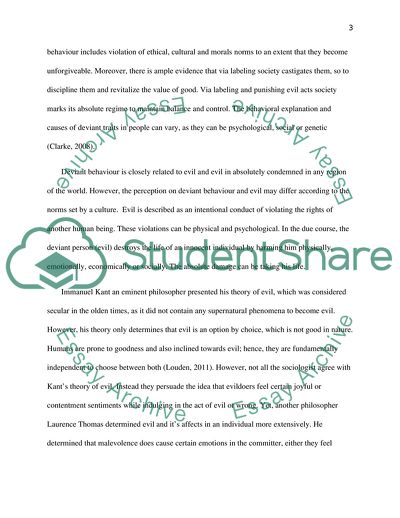Cite this document
(Sociology of Evil Essay Example | Topics and Well Written Essays - 1500 words - 1, n.d.)
Sociology of Evil Essay Example | Topics and Well Written Essays - 1500 words - 1. https://studentshare.org/sociology/1828585-sociology-of-evil
Sociology of Evil Essay Example | Topics and Well Written Essays - 1500 words - 1. https://studentshare.org/sociology/1828585-sociology-of-evil
(Sociology of Evil Essay Example | Topics and Well Written Essays - 1500 Words - 1)
Sociology of Evil Essay Example | Topics and Well Written Essays - 1500 Words - 1. https://studentshare.org/sociology/1828585-sociology-of-evil.
Sociology of Evil Essay Example | Topics and Well Written Essays - 1500 Words - 1. https://studentshare.org/sociology/1828585-sociology-of-evil.
“Sociology of Evil Essay Example | Topics and Well Written Essays - 1500 Words - 1”. https://studentshare.org/sociology/1828585-sociology-of-evil.


